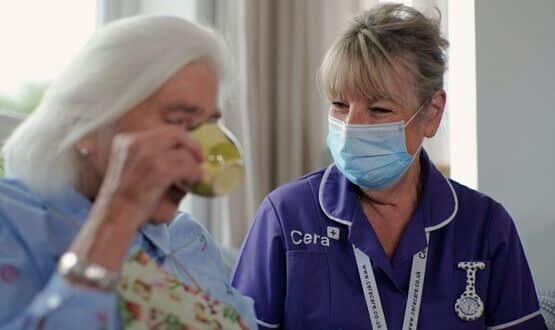Cera delivers 7.5m winter home care visits saving NHS estimated £100m
- 23 February 2024

Leading home healthcare provider Cera has announced the successful delivery of 7.5 million home care visits over the winter period, saving the NHS an estimated £100 million.
The figure, which is 2.5 million more than the initial five million visits planned last October, is underpinned by Cera’s AI-powered care model, where patient symptoms and health data are used to predict deterioration of patient condition 30 times quicker than typical methods.
This has enabled Cera to deliver more effective care in the home and reduce hospitalisation rates by up to 70%, alleviating further burden on already-overstretched NHS services.
Cera, Europe’s largest provider of digital-first home healthcare equivalent in capacity to almost 100 NHS hospitals, also recently announced an AI-led care scheduling platform, which has enabled the delivery of 30% more care visits in parts of England.
A greater number of visits has been achieved by reducing a carer’s average travel time between patients by 50%, meaning that more patients can receive high-quality care without placing additional pressures on carers.
Dr Ben Maruthappu, founder and CEO of Cera, said: “Cera’s achievement this winter not only demonstrates the transformative role AI is playing in the delivery of healthcare services, but also highlights the growing importance of moving healthcare from hospital settings and into the home.
“By developing innovative solutions to tackle widespread health and social care issues, we can continue to alleviate pressures on a stretched NHS and improve patient outcomes by enhancing what can be delivered in home-based settings.
“Providing greater amounts of advanced care within the home continues to be one of the UK’s greatest healthcare priorities, and we are proud that our work is making such a vital impact during a critical time for the NHS.”
Back in October we also reported that Cera had developed and launched AI that predicts people falling at home a week before it happens with 83% accuracy.





